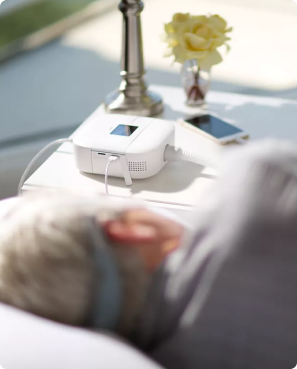The Importance of Hydration When You Have COPD
If you have been recently diagnosed with chronic obstructive pulmonary disease
How Much Water Should I Drink a Day?
According to the United States National Academies of Sciences, Engineering, and Medicine, men should get around 16 cups (or 4 liters) of water per day. Women should get about 12 cups (or 3 liters) of water per day. 1 So, the old rule of thumb about drinking 8 glasses of water per day seems about right. Now, this does sound like a lot of water to some people, but you must take in consideration that the body can get 20% of needed fluids from foods. So, if you are eating right, you might consider 6 glasses a day, but this is where things get tricky: these figures are averages for normal, healthy adults. Therefore, the answer to the question, “How much water should I drink in a day?” is a bit different for adults with COPD. In a nutshell, adults with COPD need to get more than the average amount of water per day to stay properly hydrated. This means that your typical COPD patient needs to get at least 8 glasses of water per day. However, if you really want to see a difference in your quality of life, you should be getting more like 12 glasses of water per day. Again, these are estimates and you should consult with your doctor or respiratory therapist about whether you are getting enough water per day.
Benefits of Proper Hydration
As mentioned above, one of the benefits of proper hydration for the COPD patient is the thinning of excess mucous. Another major benefit of proper hydration is that is keeps your joints lubricated and flexible. With proper hydration, your body produces the right amount of synovial fluid. This fluid reduces friction between your joints. Plus, it helps you to maintain healthy body tissues. This is particularly important for people with COPD since many experience significant joint pain similar to arthritis. Hydration can help prevent this kind of pain.
Another benefit of proper hydration for the COPD patient is that it helps regulate body temperature. Fluctuations in body temperature can cause COPD symptoms to worsen. In fact, extremes in hot or cold body temperatures can trigger COPD flare-ups. Therefore, by keeping the body hydrated, you can lower the risk of exacerbating COPD symptoms since water helps the body regulate its temperature. Plus, proper hydration can help remove waste from the body, but also transport nutrients throughout the body.
How Much Water is Too Much?
For adults with COPD, being overhydrated is not really a problem. The bodies of COPD patients use more water than other average people, so if you are concerned about having hyponatremia—a condition brought on by having too much water in your system—please consult your doctor or respiratory therapist. Consequently, if you have any questions about
hydration and COPD you can reach out to our Customer Support team by calling (800) 653-6888. We can connect you with one of our staff respiratory therapists. Our clinical support staff is happy to help.
1 National Academy of Sciences, Engineering, and Medicine. “Report Sets Dietary Intake Levels for Water, Salt, and
Potassium to Maintain Health and Reduce Chronic Disease Risk.” Nationalacademies.org. February 11, 2004.

